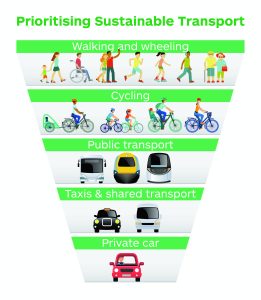
Social impact reporting refers to the process of measuring and communicating the social and environmental effects of an organization’s activities. It is a method used by businesses, non-profit organizations, and government entities to assess and report their contributions to society.
Why is Social Impact Reporting important?
Measuring and reporting social impact has become increasingly relevant in today’s world. Stakeholders, including investors, consumers, employees, and communities, demand transparency and accountability from organizations. Social impact reporting provides a framework to evaluate the positive and negative consequences of an entity’s operations, empowering stakeholders to make informed decisions.
Benefits of Social Impact Reporting
1. Increased transparency: By reporting social impact, organizations become more transparent about their practices and outcomes. This transparency fosters trust and allows stakeholders to understand how their engagement aligns with an organization’s values.
2. Better decision-making: Social impact reporting provides organizations with data-driven insights to inform their decision-making processes. By identifying areas of improvement and success, organizations can optimize their strategies and allocate resources more effectively.
3. Enhanced reputation: When organizations actively measure and report their social impact, it builds a positive reputation. Socially responsible initiatives attract customers and investors who prioritize ethical business practices and sustainable operations.
4. Positive impact on communities: Social impact reporting allows organizations to understand the real-world effects of their actions. By identifying and addressing social and environmental challenges, organizations can contribute to positive change in the communities they operate in.
Types of Social Impact Reporting
1. Environmental Impact Reporting: This type of reporting focuses on an organization’s ecological footprint, including greenhouse gas emissions, water usage, waste management, and other environmental factors.
2. Social Enterprise Reporting: Social enterprise reporting is specific to organizations that aim to create positive social or environmental change. It evaluates both their financial performance and the impact they generate.
3. Corporate Social Responsibility (CSR) Reporting: Many companies, both small and large, engage in CSR activities. CSR reporting measures the impact of these initiatives, which can include philanthropy, employee volunteer programs, and sustainable sourcing.
Challenges in Social Impact Reporting
1. Data collection and measurement: Gathering accurate and reliable data to measure social impact can be challenging. Organizations need proper systems and tools to collect, track, and analyze relevant data effectively.
2. Standardization: Currently, there is no universal standard for social impact reporting. The absence of standardized metrics hinders meaningful comparisons between organizations and sectors.
3. Complexity: Social impact is multidimensional, making it difficult to capture the full extent of an organization’s effects in a single report. Striking a balance between simplicity and granularity is a constant challenge.
4. Limited resources: Conducting comprehensive social impact assessments requires resources such as time, expertise, and financial investments. Smaller organizations often struggle with limited capacity to implement robust reporting methods.
The Future of Social Impact Reporting
The shift towards sustainability and social responsibility is likely to propel the importance of social impact reporting even further. Governments and regulatory bodies are increasingly mandating disclosure of social impact information, signaling a growing emphasis on accountability and transparency. Furthermore, advancements in technology and data analytics will facilitate the collection and analysis of meaningful social impact data.
Conclusion
Social impact reporting plays a pivotal role in creating a sustainable and responsible future. By quantifying and sharing the effects organizations have on society and the environment, stakeholders can make informed decisions and foster positive change. As organizations recognize the benefits of social impact reporting, it is becoming an integral part of their strategic decision-making processes.


